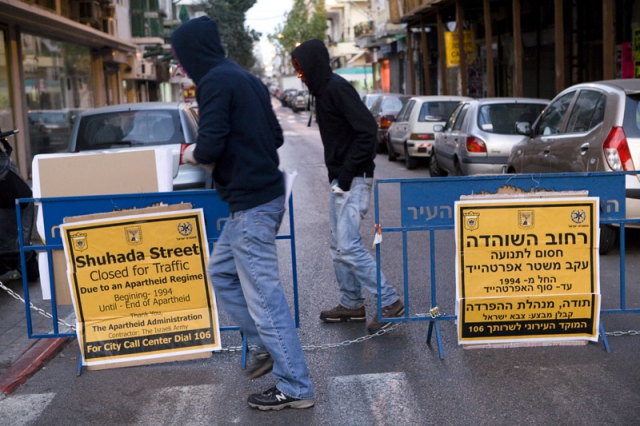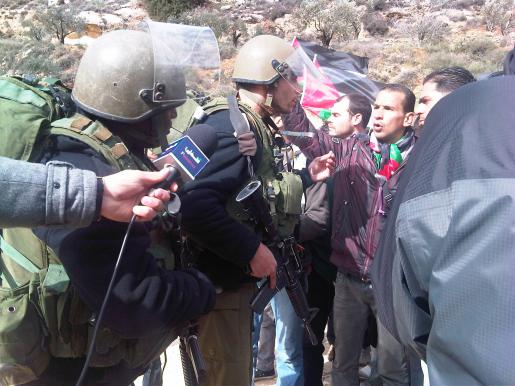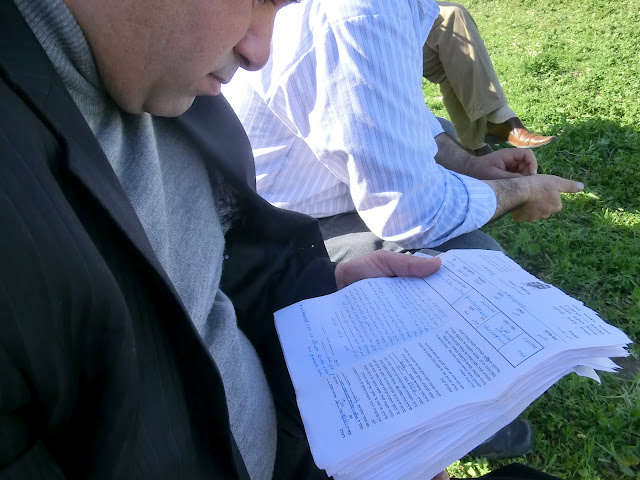-
3rd annual Global Day of Action to Open Shuhada (Apartheid) Street
15 January 2012 | Youth Against Settlements This year, Palestinian activists in Hebron are planning a week of activities to commemorate the Baruch Goldstein Massacre and demand the opening of Shuhada Street. The planned activities in Hebron are as follows: Monday : 20/02/2012 Photo Exhibition about the Ibrahim Mosque Massacre and Non-violent […]
-
Settlers attack demo in Qaryut
10 February 2012 | Popular Struggle Coordination Committee Demonstrators in Qaryout attempted to plant olive trees to resist land grab. On the way, they were attacked by settlers and the army. Approximately 100 residents of the Qaryout joined the weekly protest against the occupation this week, aiming to plant olive trees on their lands, as […]
-
Tubas: Israel robs the Jordan Valley dry
by Jonas Weber 8 February 2012 | International Solidarity Movement, West Bank On Saturday 5 February a delegation of activists from the International Solidarity Movement (ISM) went on a tour in the municipality of Tubas, 30 minutes by car to the south east of Nablus. At the municipality building of Tubas we were greeted by Marwan E. Toubassi, […]
Action Alert An Nabi Saleh Apartheid Wall Arrests BDS Bethlehem Bil'in Cast Lead Demonstration Denial of Entry Ethnic Cleansing Farmers Gaza Global Actions Hebron House Demolition International law Israeli Army Jerusalem Live Ammunition Nablus Ni'lin Prisoner Ramallah Rubber-coated steel bullets Settlement Settlers Settler violence Tear-Gas Canister Video



